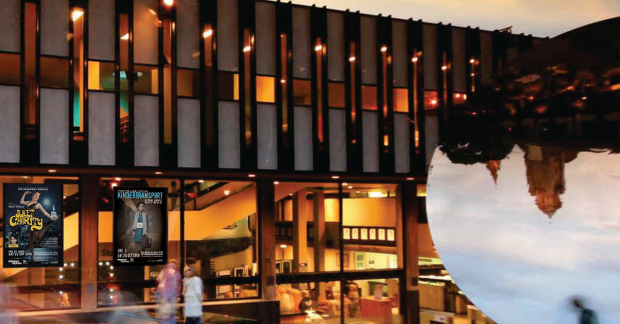Tier three restrictions explained – what do they mean for English theatres?
We look at how these measures could affect theatres in England

© Liverpool BID Company
What does tier three mean?
Tier three is the highest tier of the English coronavirus system and currently, it means that as a base rule, all bars and pubs have to close.
Furthermore, indoor and outdoor gatherings featuring more than one household or bubble are not permitted, with local authorities having the ability to impose further restrictions (on the likes of leisure or hospitality) if they deem it necessary.
Those inside tier three locations are dissuaded from leaving the area, while those not inside tier three locations are encouraged not to enter.

Where is it currently in place?
Liverpool, Lancashire, Greater Manchester, South Yorkshire and Warrington are all tier three areas, while Nottingham and Greater Nottinghamshire are set to follow later this week. Further locations may be announced in due course.

© Drew Baumohl
How does it affect theatres?
First of all, theatres in tier three areas do not have to close unless instructed to do so.
It is up to local authorities to decide whether or not entertainment venues should go the same way as bars or pubs (except those that serve substantial meals). None of those in tier three locations have been forced to do so thusfar – with Manchester's Hope Mill pressing ahead with performances of its Rent revival from later this week and the Unity Theatre in Liverpool up and running.
Of course, audiences should still expect a plethora of rules including mandatory face masks and social distancing. It is now the law (and venues may be penalised if they do not enforce) that no mixed households sit in groups in an auditorium.
The real issue is that those living inside and outside tier three areas are dissuaded from travelling out of or into these areas – though this is not legally enforced, it is the current messaging from those in government.
What should I expect when I see a show?
Sitting in a theatre, mask on, will for the time being certainly feel a bit strange. Venues such as Southwark Playhouse (tier two) or the Hope Mill (tier three) are using perspex screens to partition audiences, while the Bridge Theatre in London (tier two) is meticulously removing seats and reconfiguring the space to suit the bubbles that have booked on a nightly basis.
SOLT and UK Theatres have unveiled a fantastic "See It Safely" initiative to make sure each and every venue is implementing on all the latest protocols. If you have any concerns then contacting the venue and asking them to explain their measures is no bad thing – if they've done everything right (as every venue seems to be doing) then there's nothing to hide.
The Hope Mill Theatre in Manchester (tier three), has released a wonderful video explaining all of the protocols it has in place:
We're ready to open our doors and welcome you safely back to the theatre
Here's what to expect when you return to Hope Mill! https://t.co/dF5Kh3nA7h pic.twitter.com/8j7SO9IuJ6
— Hope Mill Theatre (@hopemilltheatr1) October 23, 2020
For those that aren't comfortable with travelling to and from venues or are wanting to shield family members – there is a raft of streaming opportunities for the likes of Rent, The Last Five Years or even Chichester's revival of Crave – so you can get a stagey fix from wherever you are based and whatever your circumstances.
Could these restrictions change?
Things could definitely change, but it seems that, on the whole, most authorities are more than reassured by the measures already being taken to safeguard audience and mitigate risks.
Venues are in constant contact with local authorities in case situations change and will always inform their customers if plans have to be altered.
Of course, if we see a drop in the infection rate, areas may move into lower tiers, though this has not yet occurred.












